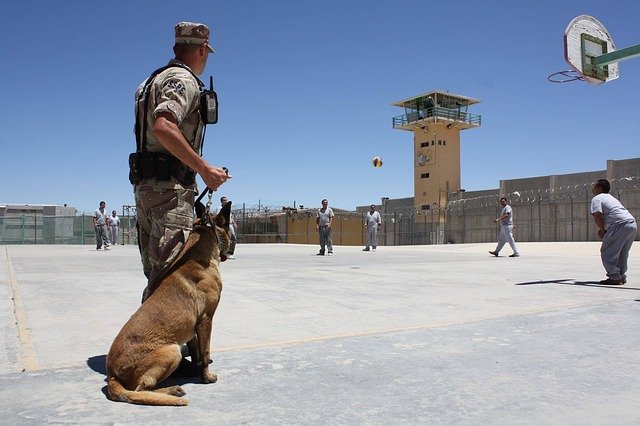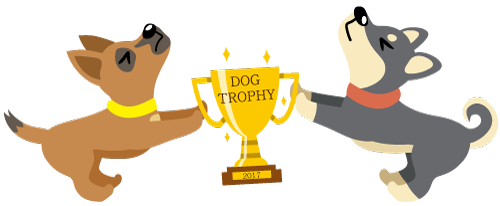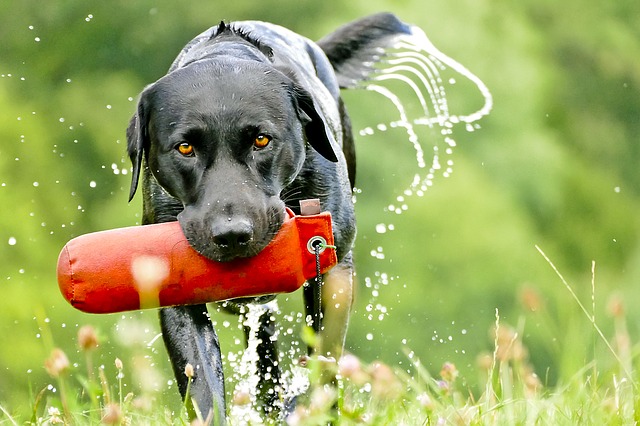If you love dogs, you probably already know something about dogs that are trained for some activity. There are various jobs and activities that dogs can do. Dog’s unique skills make them suitable for a lot of police or military tasks. One of the most important (and most convenient) jobs that dogs can have, is their sense of detection. If you want to learn more about how dogs help the police or military with their fantastic flair, here’s what you should know about how dogs are trained to detect.
What are trained dogs for detection?
Before we elaborate the details of their training, we need to understand what actually detection means. Detection dogs are trained dogs to detect illegal substances, blood, explosives, electronics, money or wildlife. They will use their sensitive sense of smell to help us prevent crimes. They are like superheroes. Some dogs can detect or smell medical problems.
There are two main jobs or activities that dogs specialize in – hunting and tracking. However, hunting dogs that can track prey or tracking dogs used by police to find missing persons are not considered dogs for detection. The line becomes foggy around the dogs to detect human remains.
Why are dogs perfect for detection?
Dogs have a sense of smell that can be 10,000 – 100,000 times more sensitive than human sense of smell. Dogs can easily and fast catch the smells of things they are trained to detect. Dog’s nose is most powerful weapon, and it is one of the main ways they examine their surroundings. You should not be surprised to see that your dog has his nose close to the ground while walking him.
In addition to their fantastic sense of smell, dogs and humans have evolved to work together. People and dogs have lived and worked side by side for tens of thousands of years. They are “programmed” to serve to us. If you train a dog to discover something, it will do its best to find that thing and make its owners happy.
Which dog breeds are best in detection?
There are some things that you should keep in mind when choosing the best breed of dog to detect. The natural abilities of the dog breed should play an important role. For a simple example, the Bloodhound has the strongest flair in the kingdom of canine. This dog breed has a clear advantage over when it comes to detection. Mastiffs are better protectors, and that is why people bred them.
Another thing to consider is the character of the dog. Physical ability alone is not enough. Dogs must be calm, motivated and have a working mentality. Some breeds are simply better at it than others. Labradors do not have the most sensitive sense of smell, but they really fast learn the training activities.

How are dogs trained for detection?
Dogs are born with a natural ability to detect specifically smell that we cannot discern, but those abilities need to be shaped and focused. A dog can be trained to detect different things, but many detection dogs specialize in finding one or two things. Keep in mind that drug-sniffing dogs have to detect different types of narcotics, which means learning up to 15 different smells. The same goes for dogs that discover explosives, money or other things that need to be discovered.
Dog’s training for detection
Training dogs for detection will require at least two types of training. The first is obviously detection of specifically smell. The dog must respond to the guide’s commands, and that response must be quick and accurate. Here’s what a dog training looks like;
Training for detection of specifically smell
Training for detection of specifically smell begins with giving your dog their favourite toy. In many cases, the trainer will get the dog used to playing with the towel without odour. The dog will constantly look at the trainer and want to play with him. After a while, the trainer will start hiding the narcotics inside the towel and hiding the towel. The dog will have to look for him. Once the dog finds a toy (towel), he will be rewarded with a short play. This type of training will create an connection in the dog’s brain. The dog will associate the smell of narcotics with his favourite toy and rewards.
Training for obedience
Having a dog that can detect narcotics but does not want to follow orders is not really helpful. This is why all trained dogs for detection must have a part of training for obedience training. The dog will learn to sit or bark after encountering a suspicious odour. It will also teach them how to walk by the leg, search, sit, lay down etc. The training will be completed when the future detection dog can obey the command in 95% of cases.
Two types of approaches
One of the things that dogs for detection need to be trained in is the right approach. There are two types of approaches – passive and aggressive. Here is the main difference.
Aggressive approach
Dogs for narcotic detection are generally taught an aggressive approach. When the detection dog encounters the smell of narcotics, it will start digging around where the smell comes from. If the narcotic is buried, the dog will start digging into the ground until the guide recalls it.
Passive approach
While an aggressive approach is used by narcotic-sniffing dogs, a passive approach is a much better and safer option for dogs that detect explosives. You do not want to have a dog digging an explosive device. Dogs will learn to smell, and when they do, they must sit down and passively inform the handler.
What can detect trained dogs?
A lot of us know about dogs that sniff narcotics or dogs that detect explosives. We have already mentioned a few things that dogs can learn to detect. However, this is just the surface of what detection dogs can actually do. Here are some things dogs can detect;
• Human remains
• Endangered animal species
• Mushrooms, such as truffles
• Explosives
• Fire accelerators
• Bed bugs
• Diseases
• Narcotics
• Firearms
• Ivory
• Money
• SIM cards
• Mobile phones
• USB drives
• Plants, animals, products and agricultural items that must pass customs
• Termites
• Wildlife remains
There is a wide variety of detection jobs that dogs do for us. They are fantastic animals that we use for company and business.





